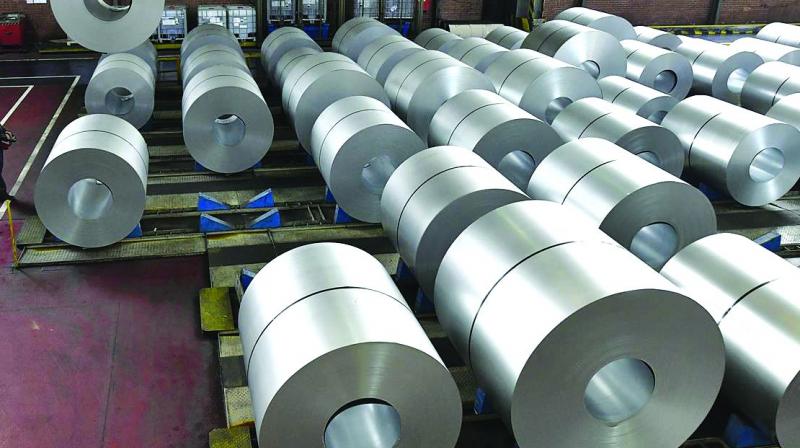Steel prices see steep fall

Kolkata: Steel demand has palpably been on a downslide recently, thanks to a slowdown in all key steel consuming sectors. And this, in turn, has led to a significant drop in steel prices in July. The fall in demand has not been without a reason. While in India, slowdown in sectors like automobile, housing, construction and infrastructure has led to a demand slump, globally the trade tensions between the US and China contributed to the fall in demand and thereby to a drop in price.
Prices of hot rolled and cold rolled coils fell by nearly Rs 3,000 per tonne in the last 40 days mostly due to the continuing slowdown in automotive, housing and infrastructure sectors. The trade tension between the US and China also has contributed to the fall in prices.
During 2018-2019, international steel prices for hot rolled and cold rolled coils have declined by 11.5 per cent and 11.9 per cent respectively compared with 2017-18 prices. Steel prices fell below Rs 40,000 per tonne in the domestic market, which is the lowest since December 2017. The drop in demand has also been causing inventory pile-up.
“Business confidence has dipped sharply in recent months amidst broader economic weakness and the uncertainty around the ongoing US-China trade conflict, which has had an adverse effect on investment decisions, capex spend and trade flows. Consequently, steel prices across many geographies declined in 1QFY20. This coincided with a sharp rise in iron ore prices due to supply disruptions and elevated coking coal costs. As a result, market spreads for steel producers globally have been affected,” a senior Tata Steel official said.
Looking outside in India, in Europe, for instance, the steel industry is facing significant headwinds in terms of lower economic growth and trade flow uncertainty that is impacting steel consuming products. Tata Steel Europe's 1QFY20 production was impacted by planned shutdowns and unplanned outages during the quarter. This coupled with sluggish demand affected the sales volume in 1QFY20, Tata Steel official said.
In India, the liquidity issues in the NBFC and banking sector along with rural stress have also negatively impacted sentiments and overall economic activities.

